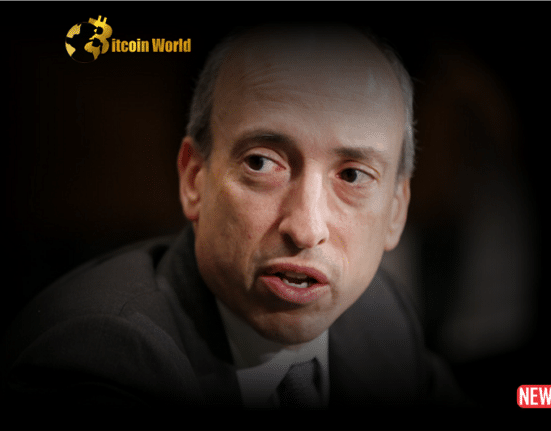Gary Gensler, the Chair of the United States Securities and Exchange Commission, harbors deep concerns about the stranglehold that Big Tech exerts on artificial intelligence technologies and how it’s homogenizing the financial market.
In a recent interview with the Financial Times, Gensler unequivocally asserted that the unbridled adoption of artificial intelligence could usher in an imminent financial crisis. He painted a stark picture of the future, warning that this crisis might materialize within the next decade.
Gensler’s apprehensions pivot around the centralization of AI models and their entanglement with cloud service providers. He articulated his concerns, saying, “I do think we will, in the future, have a financial crisis… If everybody’s relying on a base model, and the base model is not perched at the broker dealer but rather housed within one of the behemoth tech conglomerates. Moreover, how many cloud providers do we have in this country?”
In tandem with the regulation of cryptocurrency, artificial intelligence has emerged as one of the SEC’s most formidable regulatory puzzles. According to the reports in the Financial Times, Gensler is deeply troubled by the creeping overreliance on similar AI models, like ChatGPT, which could potentially spark herd-like behavior on Wall Street and ripple through the vast expanse of the U.S. financial markets.
Gensler’s perspective isn’t a novel one. In 2020, he co-authored a research paper titled “Deep Learning and Financial Stability.” In this paper, he expressed a similar viewpoint, joined by Lily Bailey, then an MIT research assistant who now serves at the SEC as an assistant to the chief of staff. As outlined in this 2020 paper, the burgeoning adoption of artificial intelligence systems in the financial ecosystem raises alarms about potential fragility in the financial system and economy-wide risks.
The paper subtly hints at the need for government intervention, as it posits, “Existing financial sector regulatory frameworks, conceived in an earlier era of data analytics technology, may fall short in addressing the systemic risks arising from the widespread embrace of deep learning in the realm of finance.”














